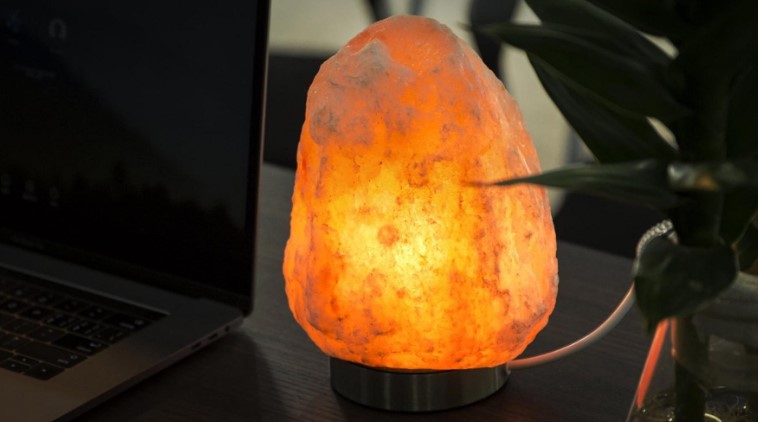Water break while sleeping or dehydration during sleep is a common condition that many people experience without even realizing it. It occurs when your body loses more fluids than it takes in during your rest hours, leaving you feeling dehydrated and uncomfortable.
Some of the most common causes of water breaks while sleeping include alcohol consumption, medications that cause excessive urination, or not drinking enough water during the day. Dehydration while sleeping can lead to a long list of symptoms that can make it difficult to get a good night’s rest.
Some of the most common signs of water breaks while sleeping include having a dry mouth, feeling thirsty upon waking up, experiencing dizziness or headaches, and feeling generally unwell. Additionally, signs of dehydration can include fatigue, dark urine, dry skin, and infrequent urination.
If you suspect that you may be experiencing dehydration during sleep, there is a simple test that you can perform to check. Simply apply gentle pressure to the back of your hand with your finger and see how long it takes for the skin to return to its original position. If it takes more than a second, you could be dehydrated.
To prevent water breaks while sleeping, it is important to drink plenty of fluids throughout the day and avoid consuming alcohol in the hours leading up to bedtime. Additionally, if you are taking any medications that cause excessive urination, it may be helpful to speak with your doctor about ways to mitigate this side effect.
If you are experiencing severe or persistent symptoms of dehydration during or after sleep, it is important to seek medical attention as soon as possible. Dehydration can lead to serious health problems if left untreated.
What Causes Water Break While Sleeping?
When you’re asleep, your body still functions and uses water to perform essential tasks, such as regulating body temperature, carrying nutrients to cells and flushing out toxins. Dehydration occurs when your body loses more water than it takes in, and this can lead to a water break while sleeping. There are various reasons why you might be dehydrated.
Certain medications can cause dehydration as a side effect, so it’s essential to check the labels of any medication you’re taking and speak to your doctor if you’re concerned. Drinking excessive amounts of alcohol can also contribute to dehydration, and it’s best to avoid drinking alcohol before bedtime.
Moreover, leading a busy lifestyle or working in a job where you’re frequently on the move can lead to you forgetting to drink enough water, which can cause dehydration. To prevent a water break while sleeping, make sure to drink plenty of water throughout the day, and monitor your alcohol consumption levels.
In conclusion, dehydration can happen for a variety of reasons, but it’s crucial to recognize the early signs, such as dry mouth, thirst, dizziness, and headache. Speak to your doctor if you’re experiencing severe symptoms or if you’re concerned about dehydration. By taking preventative measures and staying hydrated, you can avoid a water break while sleeping and keep your body functioning at its best.
Signs of Water Break While Sleeping
Dry mouth, thirst, dizziness, and headache are the most common signs of dehydration while sleeping. Waking up with a dry mouth and feeling thirsty are clear indications that your body is in need of hydration. Dizziness and headache upon waking up are also signs of dehydration. In severe cases, dehydration can cause muscle cramps and fainting spells.
Additionally, a lack of urination throughout the day may also indicate dehydration. The color of urine can also be an indicator of hydration levels, as darker urine may suggest dehydration.
It’s important to note that signs of dehydration while sleeping may vary depending on the person and the severity of their dehydration. It’s crucial to stay vigilant of these symptoms and take action to prevent dehydration from occurring in the first place. Drinking plenty of water throughout the day and avoiding alcohol consumption before bedtime can be effective preventative measures.
If you do experience dehydration while sleeping and the symptoms persist or worsen, it’s important to seek medical attention immediately. Dehydration can have serious consequences on your health and should not be taken lightly. Rehydration with water and electrolyte-rich drinks, such as sports drinks or coconut water, can help treat dehydration.
Other Symptoms of Dehydration
Dehydration can cause various symptoms, including fatigue, dark urine, dry skin, and infrequent urination. These symptoms arise when a person’s body doesn’t have enough fluids to perform its normal functions. When your body lacks fluids, it starts to prioritize the most important bodily functions first, and these can include regulating body temperature and maintaining blood pressure. As a result, organs such as the skin, bladder, and kidneys may not receive sufficient fluids and can start to show signs of dehydration.
One of the most significant symptoms of dehydration is fatigue. If you’re not getting enough fluids, your body will try to conserve energy, leading to symptoms of tiredness and lethargy. Dark urine is another symptom associated with dehydration. When your body doesn’t have enough fluids, the urine becomes more concentrated, leading to a darker color than usual. You may also notice that your skin is dry when you’re dehydrated, as the body tries to conserve fluids by limiting the amount of moisture lost through the skin. Finally, infrequent urination is another symptom that may arise when the body lacks fluids. When you’re dehydrated, your bladder doesn’t fill up as frequently, and you may find yourself urinating less often than usual.
Overall, it’s important to pay attention to symptoms associated with dehydration, such as fatigue, dark urine, dry skin, and infrequent urination, as they can indicate that your body needs more fluids. Drinking water and other fluids regularly throughout the day can help prevent dehydration and keep your body working at its best.
How to Tell If You’re Dehydrated
Dehydration is a serious condition that can cause a variety of symptoms, including headaches, dizziness, and fatigue. One way to tell if you are dehydrated is by performing the skin pinch test. This simple test involves pinching the skin on the back of your hand and holding it for a few seconds before releasing it. If the skin takes time to return to its original position, it could be a sign of dehydration.
It’s important to note that the skin pinch test is not a definitive diagnostic tool for dehydration. If you are experiencing symptoms of dehydration, it’s always best to drink plenty of fluids and seek medical attention if needed. In addition to the skin pinch test, there are other signs of dehydration, such as dry mouth, thirst, and infrequent urination. If you notice any of these symptoms, it’s important to drink fluids and stay hydrated.
Preventing dehydration is key to avoiding the water break while sleeping. To prevent dehydration, it’s important to drink plenty of water throughout the day and avoid alcohol consumption before bedtime. It’s also important to take any medications as prescribed by your doctor, as certain medications can cause dehydration as a side effect.
If you do experience a water break while sleeping or other symptoms of dehydration, rehydration with fluids is the key to treatment. Drinking water or electrolyte-rich drinks, such as sports drinks or coconut water, can help restore the body’s fluid balance and alleviate symptoms.
If symptoms persist or are severe, it’s important to seek medical attention immediately. Dehydration can cause serious health problems if left untreated, so it’s important to stay vigilant and take steps to stay hydrated and healthy.
How to Prevent Water Break While Sleeping
To prevent water break while sleeping, it is essential to stay hydrated throughout the day. Make sure to drink enough amount of water and include water-rich foods in your diet. Avoid consuming alcohol or caffeine before bedtime as they can cause dehydration. Moreover, it is important to take your medications as prescribed by your doctor. Some medications can cause dehydration as a side effect, so it is crucial to take precautions.
It is also recommended to keep a glass of water beside you before sleeping. This can help you to rehydrate during the night if needed. Using a humidifier in your bedroom can also prevent dryness in the air that can lead to dehydration. Additionally, you can incorporate electrolyte-rich drinks like sports drinks or coconut water into your diet to maintain hydration.
In conclusion, preventing water break while sleeping is crucial to avoid serious consequences. By staying hydrated throughout the day, avoiding alcohol consumption before bedtime, taking medications as prescribed, and incorporating electrolyte-rich drinks, you can prevent dehydration while sleeping. If you experience persistent or severe symptoms, seek medical attention immediately.
Treatment for Dehydration
Dehydration can cause several symptoms, including fatigue, headache, and dizziness. Drinking plenty of water is the best way to prevent dehydration. Water is the cheapest and most readily available drink to quench your thirst. However, when dehydration has already occurred, rehydration with water or electrolyte-rich drinks is the key to treatment. Besides water, sports drinks or coconut water are great options for rehydration, as they contain electrolytes, which are essential minerals that help regulate various functions of the body. Sports drinks contain sodium, potassium, and other electrolytes, while coconut water is a natural source of electrolytes.
When treating dehydration, it’s important to determine the degree of dehydration. Mild dehydration can usually be treated by drinking more fluids, while severe dehydration may require intravenous (IV) fluids administered by a healthcare provider. If you have severe dehydration symptoms, such as confusion, chest or abdominal pain, or difficulty breathing, seek medical attention immediately.
In summary, staying hydrated is critical for good health. Drink plenty of water throughout the day and always have a water bottle with you. If you experience signs of dehydration or water break while sleeping, rehydrate with fluids containing electrolytes like sports drinks or coconut water. If your symptoms persist or are severe, seek medical attention immediately.
When to See a Doctor
If you experience persistent symptoms or severe dehydration, it is crucial to seek medical attention immediately. Dehydration can lead to serious health problems, including kidney damage, seizures, and even coma. If you are unable to keep fluids down, have dark urine, or feel disoriented, it is essential to see a doctor right away. Additionally, if you have a fever, vomiting, or diarrhea, you may become dehydrated quickly, and medical attention may be necessary.
If you are an athlete or engage in physical activities regularly, dehydration can be a common occurrence. However, if you experience excessive sweating, muscle cramps, or feel faint, it is crucial to take a break from your activities and rehydrate before proceeding. Ignoring these warning signs and not seeking medical attention can lead to serious health problems that can have long-lasting consequences.
In conclusion, dehydration while sleeping can have serious consequences if left untreated. The signs and symptoms of dehydration can be mild or severe, and it is important to seek medical attention if you experience persistent symptoms. Remember to drink plenty of water throughout the day, avoid alcohol consumption before bedtime, and take medications as prescribed by your doctor to prevent dehydration.








